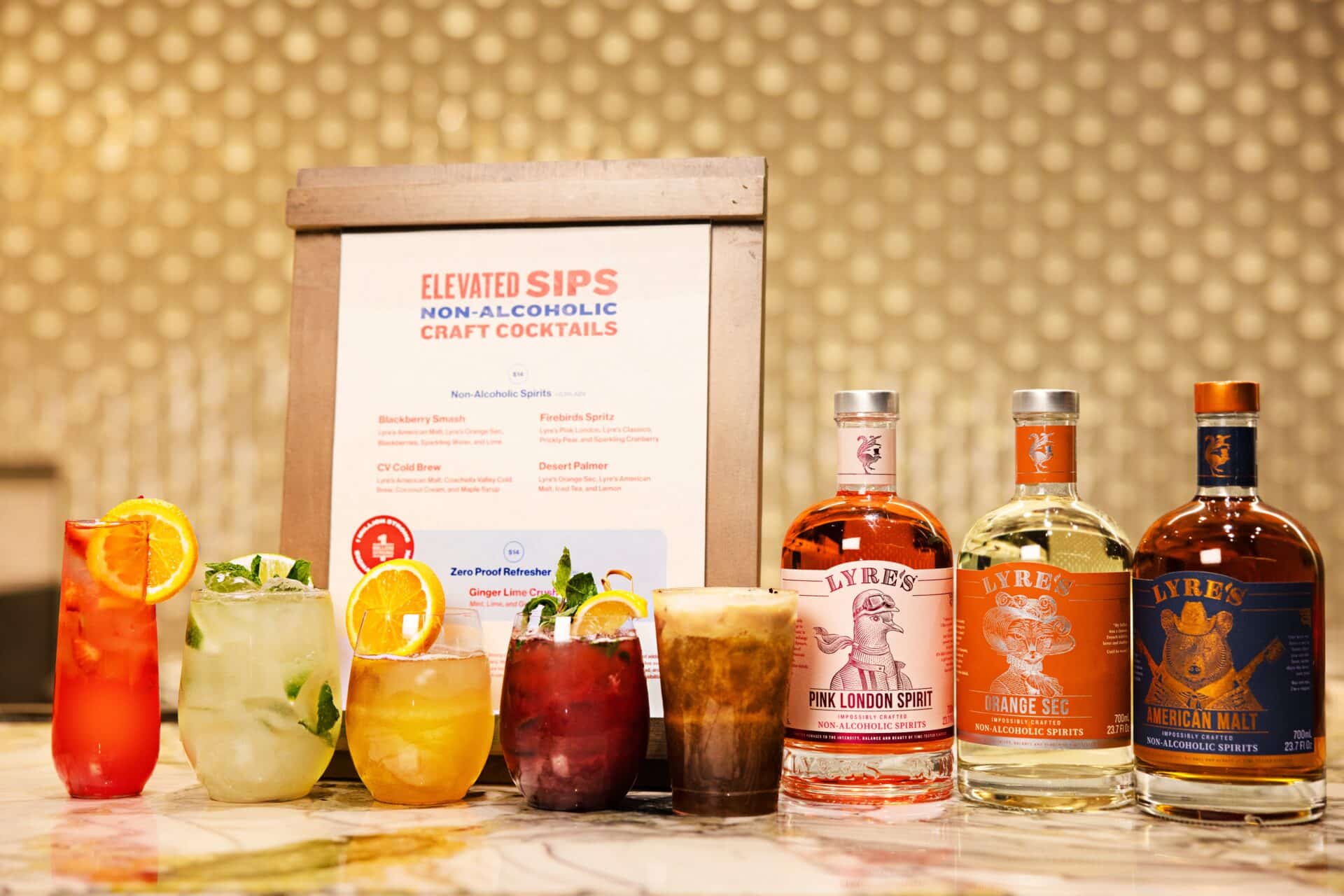Alcohol is synonymous with live entertainment, but there is a greater move across the country at festivals, stadiums and arenas to provide non-alcoholic drinks and sober sections to make the experience of attending a game or concert more welcoming for people who chose not to imbibe.
Many NFL stadiums offer non-alcohol sections for fans, including in Green Bay, Seattle, Arizona, Kansas City, Chicago, Detroit, Buffalo, Pittsburgh, New England, Philadelphia, Cleveland, Jacksonville, Tampa and Miami.
The New York Mets hosted a sober fundraiser at Citi Field in Queens to benefit their Amazin’ Mets Foundation. Kentucky’s Bourbon and Beyond festival in Louisville provides safe spaces for people recovering from addiction including a sober mosh pit.
The trend is not to tell people they can’t drink, but to offer better options and amenities for people who want to remain sober. There are compelling reasons to abstain. According to UC Davis, refraining from alcohol can improve sleep, aid weight loss and provide more energy.
Recently, Acrisure Arena in Palm Desert, California launched an elevated non-alcoholic beverage program in partnership with their exclusive social impact partner, Stand Together and their affiliate The Phoenix during Sober October. The program is part of the 1 Million Strong impact initiative, which is working to unite the music and entertainment industry, artists and fans to create inclusive sober spaces to support recovery and encourage open conversations about addition.
“Social awareness continues to change and evolve throughout our industry its yet another way that OVG can differentiate ourselves from the competition,” said John Page, senior vice president of Acrisure Arena, the AHL Coachella Valley Firebirds and OVG360 Facilities. “Being able to make a difference is extremely important to us, whether it’s from a sustainability standpoint or social awareness and our partnership with Stand Together.”

John Psge
“This was a natural partnership once we understood what Tim Leiweke and the folks at Oak View Group cared about and we knew what we could bring to the table with a group like The Phoenix,” said Brian Hooks, CEO of Stand Together. “We immediately recognized these people know music well and they shared a passion for helping to empower artists and musicians to find solutions to problems they cared about like addition.”
Acrisure Arena was the first permanent venue location for a 1 Million Strong mocktail program, which has been activated at music festivals and other events since it was founded in 2022. Officials tested the program in its premium spaces and will expand throughout the entire facility for Dry January. The 1 Million Strong initiative is a national movement to help those struggling with addiction and people who want to help by connecting them with sensible solutions.
“All these things in our minds are critical to our success and the people that attend all the venues that we own or manage,” said Page. “It’s critically important to have an offering, in this case for someone who is looking for an option that doesn’t include alcohol that can support some of their interests or needs if they have gone through a recovery program. We are happy to be involved and engaged.
Page said the arena is collecting data from season-ticket holders and guests, so they can gauge what’s working and what isn’t and make changes to the beverages being offered if needed.
“For us, it’s important to make sure that everybody is included so they can fit right in, they don’t feel left out and they can have their mocktail and be part of the group and enjoy that live entertainment offering,” Page said.
Hooks said, “This Acrisure mocktail program is a way to say, ‘everyone is welcome.’ We’ve all got our challenges you don’t need to dwell on yours. Come here, find your community, and continue to find your strength and your sobriety. You’ve got something to offer. You belong here. ‘Dry January’ is an opportunity to send that signal out.”
Normalizing the conversation around recovery helps the 23.5 million people who are currently in long time recovery. Helping people behind the scenes is equally important, officials said.
In addition to The Phoenix, headed by Scott Strode, there are several nonprofits that connect individuals in the music industry and their families with mental health resources. Those groups include Backline, which was founded in 2019 and provides customized care for all live entertainment workers; and MusiCares, established by the National Academy of Recording Arts and Sciences in 1989.
“MusiCares is a safety net for music professionals because we know what it takes to create and bring music to the world,” said Theresa Wolters, vice president of health and human services for MusiCares. “MusiCares provides financial assistance as music professionals navigate unanticipated and significant issues that may present challenges either in terms of their financial security, their health, their mental health, or their substance use in particular their access to treatment and after care services.”
Access to treatment when someone is ready is a priority, whether it’s in-patient services or intensive outpatient care.
“We work with a network of facilities across the United States and we are able to help people get care at deeply negotiated rates, which is really an important aspect of what MusiCares does,” Wolters said.
“Providing support services after people exit treatment is also important. We are building out this portfolio of support services as people exit treatment, because we realize that treatment outcomes are so much stronger and individuals are able to sustain their recovery when they do actually have after-care options,” Wolters said.
MusiCares offers Narcan or Naloxone training for corporations, festivals and individuals. For people who are coming out of treatment and want to perform in a sober environment they offer Sober Jams. For people on the road, MusiCares offers flexible, virtual emotional support and recovery support meetings. Earlier this year they launched a program named Resilience on the Road, which supports music professionals on tour with resources and tools to sustain their mental, physical and social wellbeing on the road.
“There is such a wide gamut of ways in which we are supporting our clients particularly around supportive care for mental health and addiction services,” said Brendan Berry, client manager on the MusiCares mental health and addition recovery team. “Access to adequate health care is very hard to come by and the cost of treatment is very high so we’ll place them in treatment and we will pay for that treatment…We have the ability to offer professional expertise and recommendations.”
In venues and at events, MusiCares offers Safe Harbor Rooms, that provide a safe, quiet place for musicians and crew when they need support. Based on the 12-step model, Safe Harbor Rooms are staffed by volunteers with backgrounds in recovery. Since the program started 17 years ago, MusiCares has offered 450 Safe Harbor Rooms, including festivals and award shows, reaching nearly 13,000 participants.
Wolters said providing sober spaces and mocktail programs like the one at Acrisure Arena are part of a cultural shift.
“It is representative of a bigger paradigm shift,” said Wolters. “Especially with younger artists, this recognition that your mental health matters, that exercise and eating well and living a healthier lifestyle matter. It’s exciting to see this taking shape in front of the house and back of the house, as well.”





